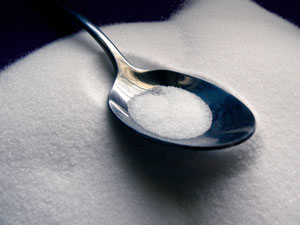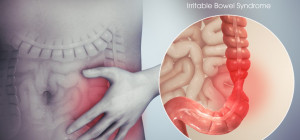Is your life dependent on artificial sweetener? If you are drinking sugar-free drinks and dumping a few of Splenda into your morning coffee, I must say you should be embarrassed to consider yourself as healthy. In reality, you are not healthy at all. Although the unsubstantiated side effects include chronic fatigue, anxiety, elevated blood pressure, obesity menstrual abnormalities, brain damage and many more to add, still it is with us.
Several studies have investigated that sugar substitutes are the root cause of countless health problems. The following three facts will certainly change your mind:
- Artificial sweeteners are chemicals or natural compounds that only replace the sweetness of sugar and not the calories. If you are one of them to see the product label that reads ‘sugar-free' and believe that these are low-calorie fat free sugar, then you are absolutely incorrect. Let me share a small secret- artificial sweeteners increases your appetite. In some cases, other ingredients in the sweeteners raises the blood sugar level dramatically
- Sweeteners such as Sucralose, Acesulfam Potassium, Aspartame (Spoonfuls, NutraSweet's, Equal, Canderel) are some of the common chemical sweetener with millions of negative effects- from hallucination to brain tumor, it is not worth consuming for the sake of saved calories
- Some of these sweet poisons like Splenda are found to enlarge the liver and kidney and shrink the thymus glands. Sucralose or Splenda breaks into a small amount of dichlorofructose which has not been tested for human consumption.
Like any flavour enhancer, artificial sweetener only sneaks into beverages, snacks and other goods after it is approved by FDA. Scientists are yet to determine as how much of a sweetener humans can safely consume on a daily basis. This measure is also known as Acceptable Daily Intake or ADI.
The artificial sweeteners allow people to stick to a good diet over a longer period of time. They are considered as free-foods in a diet. These sugar substitutes are not counted as a carbohydrate, a fat or any other exchange. Ruth Kava, the director of nutrition for the American Council on Science and Health agree to the fact that the sugar substitutes are only useful for those people who have diabetes and are overweight.
The evolution of saccharin saga:
The need for such sweetener began in the 1970s. However, in 1977, U.S. Food and Drug Administration tried to prohibit the product, as experiments on animal showed that it can cause cancer in ovaries, bladder, uterus, skin and other organs. Therefore, the Food industry intervened and requested the Congress to keep a warning label on such products that contain artificial sweetener. The label reads- ‘use of this product may be hazardous to your health. This product contains saccharin, which has been determined to cause cancer in the laboratory animals'.However, according to National Cancer Institute, there is still no scientific evidence that sugar substitutes approved for use in U.S. cause cancer. Thus, the debate is still on.
The second biggest concern is whether these sugar substitutes cause weight gain? The brain imaging studies have revealed that Sucralose does not stimulate the same pleasure in the brain as real sugar does. Since this fake stuff feels sweeter to our tongues than the real one, therefore people may end up consuming more of the latter for taste. Though alone fake sugars may not prompt glucose-spikes but regular consumption of them can, by changing the tastes cravings and perceptions encourage us to consume more of the real stuff that causes health problems.
The concern is although artificial sweetener may or may not cause cancer, it certainly encourages the tendency to eat more of the actual sugar when we find ourselves in front of it. This is because if you consumer a lot of diet products you automatically have cravings for sweet foods and beverages. Therefore, optimize your diet and help your body receive the fuel in the right combinations.
Turn to natural sweeteners for your food and drinks such as brown rice syrup, organic maple syrup, stevia, and honey, date sugar to eventually slow the production of toxic artificial sweeteners and wreck less havoc on your body. For further information, you may check with Joshua Corn and his detailed explanation on the subject.
Justin Brown is a fitness trainer and an instructor. He used to run a fitness training centre in Massachusetts a year back, but now he is working as a nutritionist at a reputed firm. He specializes in writing about alternative medicines, dietary supplements and organic food products. His objective is to offer exciting ideas on how to live in the now for which he suggests you to read Joshua Corn’s articles online.








